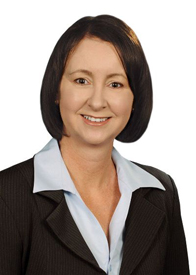Weekly column from Council Courier e-newsletter by CEO Greg Hallam on Friday, 11 November 2016.
This is a good time to be a lobbyist. This cycle of opportunity doesn't come around often – probably only every 20 years or so. But when it does councils and communities have to cash in. It really is a case of the quick or the dead.
The Donald Trump phenomenon, culminating in the American voters’ ringing endorsement this week of his bid to lead their country, drives home the political impact of the push back against the dislocation of economies and disaffection of significant groups of voters in nations around the globe.

Brexit, Trump, local, state and federal election results over the past 18 months and the resurgence of One Nation make a compelling case: the marginalised have found their voice, they’re mad as hell and they’re not going to take this anymore.
Most of these folk live in rural and remote communities, on the fringe of cities or former manufacturing hubs. They feel threatened by the digital revolution and resent policy elites wherever they be of the left and right. They are making a stand.
Governments at all levels in first world countries have learned some hard political lessons. They are scrambling to reconnect to those voters and communities.
That means lots of love and attention in the form of grants and capital projects. Plus a tilt to xenophobia and protectionism.

There has already been a real growth in this type of funding in the most recent state and federal budgets. But expect a lot more of that style of funding while this cycle of political uprising continues: paying for shovel ready projects and highly visible building works that soak up unskilled and semi-skilled folk who might otherwise be unemployed.
Governments will want this money spent quickly. We are talking six to 12 months, which is not a long lead time.
The LGAQ has geared up to help councils access this money on offer so expect calls from us in coming months.
We have already secured a highly professional project submission writer to work with individual councils on a fee-for-service basis and we are in the process of hiring someone to work with groups of councils to access current regional program offerings by state and federal governments.
We are also working behind the scenes in Canberra and George Street to influence what comes next.
Stay tuned.
And while we are on the subject of elections and their impacts, don’t forget to lodge your council’s submission on the conduct of the March local government elections. The Palaszczuk Government has appointed a panel of three former mayors – Jim Soorley, Pam Parker and Wayne Kratzmann – to look into the elections and resolve what were some pretty major problems. It’s in your interests to let them know your thoughts.
Credit where credit due is part of the LGAQ creed.

So we give a wholehearted pat on the back to Training and Skills Minister Yvette D’Ath who this week in Parliament informed the House of the success of its First Start job training program.
As the Minister told Parliament, partnering with the LGAQ on the program has led to the employment of 300 trainees across councils from Aurukun in the north, to Scenic Rim in the south, and a plethora of councils in between.
Trainees include around 50 apprentices across a number of disciplines and trainees across a diverse group of programs including horticulture, engineering, water treatment and administration.
Last year’s initial allocation of 200 trainee positions proved to be so successful, it was extended to 300 this year.
Congratulations to Minister D’Ath on helping to provide employment opportunities for young people in so many communities.
We are tracking the progress of the trainees and remain confident they will go on to forge successful careers in local government and elsewhere.
Local councils have a retention record in excess of 80 percent of its trainees, many of whom rise up the corporate ladder, even reaching Deputy CEO in recent years.